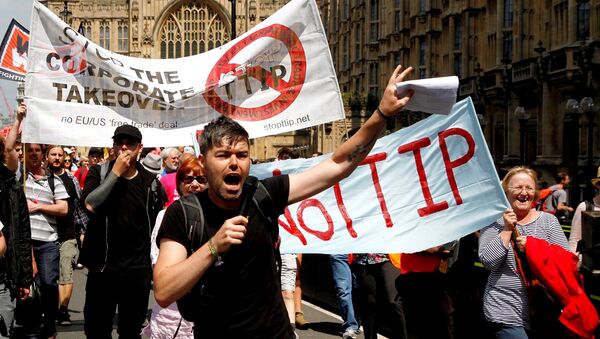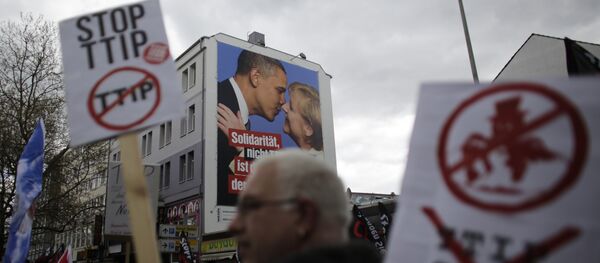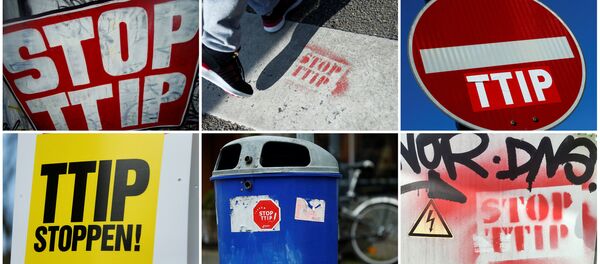"In my opinion the negotiations with the United States have de facto failed, because we Europeans did not want to subject ourselves to American demands," Gabriel said.
On Tuesday, French Trade Minister Matthias Fekl agreed, and called on the European Commission to stop negotiations with the US.
"What France is demanding is the pure, simple and definitive halt of these negotiations," Fekl said.
Belgian MEP Marc Tarabella told Sputnik Francais that the government objections are likely to spell the end of the agreement, because MEP's will probably vote against it.
"That a high-ranking German politician (Vice-Chancellor and Minister for Economic Affairs Sigmar Gabriel) has made that kind of statement is encouraging," Tarabella said.
"This treaty has failed, it's not a free trade agreement. This is an agreement on trade and investment which is aimed at protecting large enterprises and enabling them to influence public institutions and laws which protect the environment, health and the workers' rights."
"There has been strong pressure on the European Commission for a long time, and a lot of criticism both from society in the US and in Europe. The EU doesn't want to understand that the public is against this agreement," Tarabella said.
"I think the majority of UK representatives to the European Parliament are probably against the TTIP project. It would be better to hold the vote before the UK leaves," Tarabella said.
Charles-Henri Gallois, economic spokesman for France's Eurosceptic Popular Republican Union party, told Sputnik that elections being held in the US, Germany and France over the next 18 months are an important factor for politicians who are keen to be seen listening to voters' concerns.
"Discussion of this topic is being postponed for the election period. Something similar happened with the TiSA (Trade in Services Agreement, currently being negotiated by 23 members of the World Trade Organisation). TTIP is very unpopular in Europe, but it doesn't have much support in the US, either."
Gallois said that while the UK's exit from the EU might affect the fate of TTIP, the Transatlantic Free Trade Area (TAFTA) proposal is still on the table.
"Taking into account that all the other countries listen to the US … I think that Brexit won't directly affect the negotiations for TAFTA, which will surely be resumed soon," Gallois said.
The content of the deal has been severely criticized; among the major concerns is that multinational companies could use the Investor-State Dispute Settlements (ISDS) proposed by TTIP to sue national governments if their policies cause them to lose profit. The clause can be exploited by multinationals to claim compensation from governments, even if the legislation in question protected public health.
For example, when the German government phased out nuclear power in the wake of Japan's Fukushima disaster in 2011, Swedish nuclear plant operator Vattenfall sued Germany for €3.7 billion ($4.7 billion), under the ISDS clause of a treaty on energy investments. TIIP also proposes changing European law regarding privacy, health and safety and employment; US regulation offers less protection in these areas.





